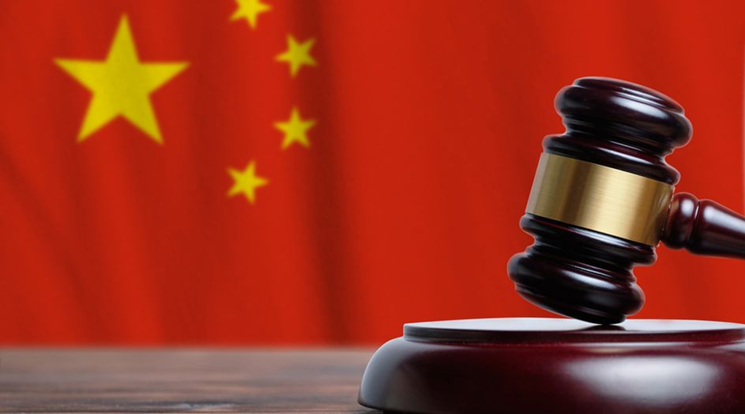
In late December 2023, the Jiangsu Higher People's Court ruled in favour of Suzhou Shikang Protective Equipment Co Ltd (‘Shikang’) in its unfair competition lawsuit against Shanghai Yuanshi Information Technology Co Ltd (‘Yuanshi’), its legal representative (Mr. Xu) and an affiliate company. A key point in this case was that the plaintiff consolidated all the actions by the defendants which impeded the plaintiff, as the rightful rights owner, from performing its normal business operations, and managed to establish the consistently unfair pattern of the defendants’ conduct. The court granted Shikang Rmb3 million in damages.
The ruling underscores the significance of the good-faith principle in market competition and the imperative to curb the misuse of IP rights.
Background
Shikang was the manufacturer of the MASkin-branded masks. In 2012 Shikang and Yuanshi began a business cooperation, with Yuanshi being responsible for operating and selling the products on the Amazon platform. That same year Yuanshi applied for registration of the MASKIN trademark for masks, which was invalidated in 2018. Before 2018, Yuanshi and its legal representative had initiated three infringement lawsuits, three administrative complaints and 23 complaints on Amazon, resulting in Shikang’s products being repeatedly removed from listings and in its assets being frozen. The administrative complaints were either subsequently dismissed or withdrawn by the local market supervision bureaus due to insufficient evidence.
Yuanshi and Mr. Xu also set up WeChat accounts using the MASkin brand and published posts to defame Shikang. Mr. Xu also had rounds of communication with Shikang, expressing his intention to set up barriers against Shikang by hijacking relevant trademarks, domain names and copyright registrations.
Key issues and rulings
In 2020 Shikang led a lawsuit for unfair competition against Yuanshi, its legal representative and affliated companies over the abovementioned series of conducts, including ling malicious IP litigation, registering similar trademarks and WeChat accounts, and disseminating defamatory content against Shikang. Shikang claimed that these constituted an abuse of IP rights in order to block Shikang from accessing the market and engaging in competition.
Both the first and second-instance courts ruled that the defendants should not engage in the action of pre-emptively registering trademarks identical or similar to Shikang's trademarks and corporate name, rectify the adverse effects of their acts, and compensate Shikang in the amount of Rmb3 million for the economic losses incurred.
In particular, the Jiangsu Higher People's Court explicitly considered the following unfair competition acts:
Malicious IP litigations and complaints - the defendants were accused of ling a number of IP litigations and complaints without genuine legal grounds or intentions, aimed at undermining Shikang’s business operations. Shikang expended a significant amount of human resources to deal with these lawsuits and complaints, and also suffered great economic and reputational losses in the process. The court identified these actions as constituting unfair competition, highlighting the abuse of the IP protection system to serve malicious ends. Specifically, the court demanded that the defendants stop ling new bad-faith trademark applications; however, it did not request that the defendants withdraw existing applications, as the court believed that Shikang had other viable remedial options in that respect.
Trademark and WeChat account misappropriation - the defendants' registration and use of trademarks and WeChat account names that closely mirrored Shikang's branded entities were found to constitute unfair practices. This act of imitation was intended to confuse the market and unjustly benefit the defendants at Shikang's expense.
Commercial defamation via published articles - the dissemination of articles that contained unfounded claims and denigrated Shikang was considered to constitute commercial defamation. This tactic intended to unjustly damage Shikang's standing in the market.
The court's rationale was rooted in the principles of fair competition and the prevention of IP misuse. It emphasised that the defendants' actions not only violated these principles, but also constituted a blatant disregard for Shikang’s legal rights and interests.
Takeaways
Following the Emerson case, where the court also demanded that the defendants stop making new bad-faith applications, this judgment provides another example of the fight against bad-faith trademarks. The plaintiff was smart in that it consolidated the defendants’ various actions to show a pattern and sought remedies under the framework of unfair competition law - rather than wasting time-fighting every single act of the defendants, which would have been more time-consuming and less likely to achieve Rmb3 million in damages.
For businesses operating in competitive markets, this ruling also serves as a critical reminder of the legal boundaries of competitive conduct. It underscores the necessity for companies to engage in fair practices and the potential legal repercussions of engaging in unfair competition.











